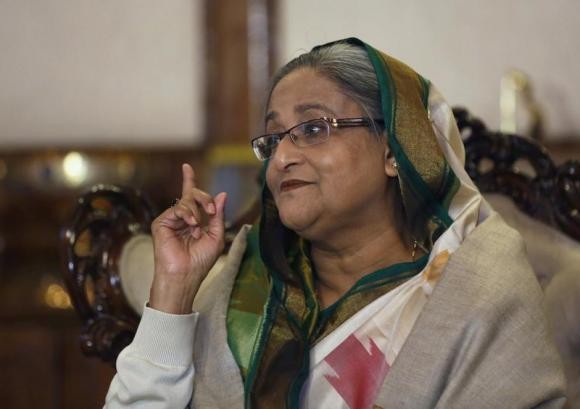
Bangladesh withdrew its candidature for a non-permanent seat in United Nations Security Council for 2016-17 term, in favour of Japan, stated Bangladesh Prime Minister Sheikh Hasina on Saturday, 6 September.
The statement by Hasina came after a meeting with the visiting Japanese Prime Minister Shinzo Abe in Dhaka. Abe is on a three-day visit to Bangladesh and Sri Lanka since Saturday, 6 September.
The two counties had competed from Asia Pacific region for the non-permanent seat in the UN Security Council, for which the election is to be held in October 2015. However, Hasina, in her visit to Japan in last May, had given a hint that her country will give up its attempt to contest the election as Japan is in the fray, The Japan Times reported.
Prime ministers of the two countries also agreed to help Japanese companies in Bangladesh to operate by enhancing the investment environment and increasing the special economic zones. On his part, the Japanese Prime Minister asserted his country's support to Bangladesh infrastructure development, especially in Bangladesh region of Bay of Bengal, where an industrial district is planned.
After the visit of Yoshiro Mori, former Japanese Prime Minister, in 2000, Abe is the first Japanese Prime Minister to visit Bangladesh. He has agreed with Hasina to strengthen their ties in diplomatic and security fields.
During his meeting with Hasina, Abe explained his country's decision to defend its allies during armed attacks. The Japanese Cabinet had taken the decision in last July by re-interpreting the Pacific Constitution.
Japanese government officials said that Hasina welcomed Abe's efforts to maintain peace and stability in the region.
The two countries re-affirmed the importance of freedom of maritime navigation and aviation in the face of increasing China's assertiveness. The two counties also gave impetus to resolving conflicts peacefully as per the international law.
Abe was scheduled to visit Sri Lanka on Sunday, 8 September. Since Abe took over as the Prime Minister of Japan in 2012, he has visited 49 countries, which is the highest number of countries visited by a Japanese Prime Minister so far. Former Japanese Prime Minister Junichiro Koizumi, who was in power between 2001 and 2006, had visited 48 countries.








